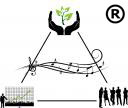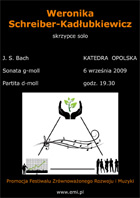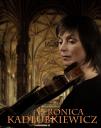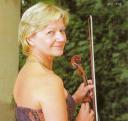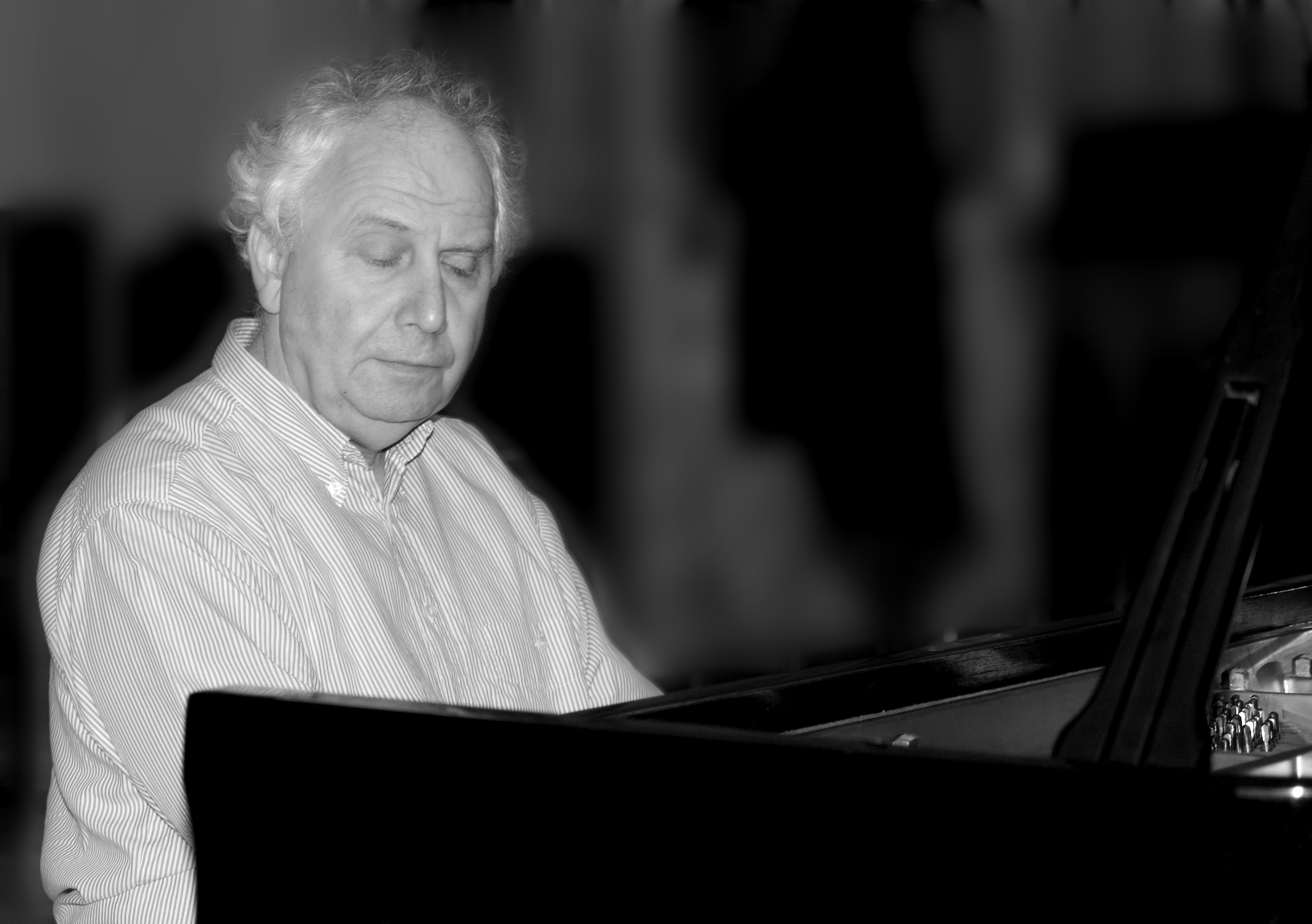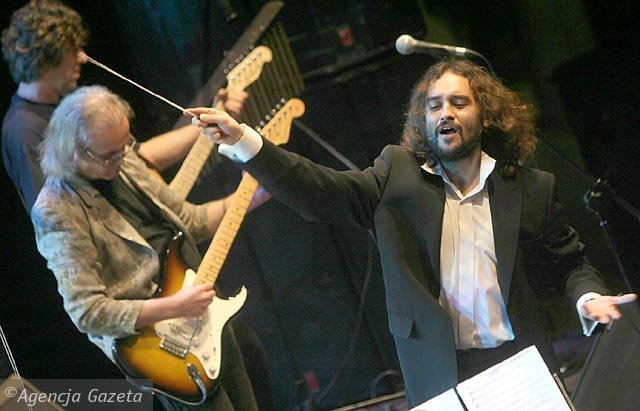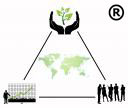Concert pianist, professor of piano, juror of piano competitions. Throughout her life music has been the central focus and inspiration. Conveying its inherent contents and emotions she considers her life mission fulfilled by performing and teaching. Maria Szraiber is also interested in various questions concerning both the composer’s work and its interpretation potential in the field of the piano literature as well as in the history of piano playing. She also devotes some of her time to the matters of the teaching process organization at the different levels of music education.
Born in Silesia Maria Szraiber there began the piano education leading her to the graduation from the Music Academy in Katowice.
Her teachers were: Wanda Chmielowska, heir of the famous piano school of T. Leschetizky and Bolesław Woytowicz, heir of the pure F. Chopin tradition, through Karol Mikuli, F. Chopin’s pupil. Maria Szraiber’s piano studies were completed at the famed P. Tchaykowsky Conservatory in Moscow where she worked under the guidance of Tatiana Nikolajeva and Rudolf Kerer, both well known representatives of the Russian school of piano playing.
Maria Szraiber has performed in concert halls throughout Poland and most of Europe, as well as in the United States, China, Japan, South Korea and Australia.
She has made many recordings. Playing the wide repertoire she is particularly associated with the music of Chopin and Debussy as well as with many works from the rich Polish piano literature. Some of her concerts have been enriched by her own comments.
Maria Szraiber often gives concerts in the places connected with Fryderyk Chopin, like Żelazowa Wola, the place of his birth, under the composer’s monument in the Łazienki Park in Warsaw and others.
In addition to performing Maria Szraiber loves to teach. She is a full professor at the Fryderyk Chopin University of Music in Warsaw where she was also elected dean of the Department of Piano, Harpsichord and Organ and was as well head of the Piano Chair.
For many years Maria Szraiber has been conducting master classes and giving lectures in Poland and abroad. She has sat on the jury of a number of piano competitions. In line with her interest in the history of piano playing she has been presenting a series of concert-lectures and reminiscences entitled “Nestors of Polish Piano Pianistics”. As a result of the series a two volume publication appeared under the same title including biographies and reminiscences devoted to Zbigniew Drzewiecki, Jerzy Lefeld, Aleksander Michałowski, Stanisław Szpinalski, Józef Śmidowicz, Margerita Trombini-Kazuro, Józef Turczyński, Maria Wiłkomirska and Jerzy Żurawlew. The book, published also in English, is accompanied by CDs with the recordings of the presented pianists.
Maria Szraiber’s interest in teaching led her to prepare a large monograph On Educating the Artist-Performer at the College Level of Piano Studies (AMFC, Research Bulletin no. 44, Warsaw, 1999).
Studying and interpreting the literature for the piano as well as artistic activities of great composers are sources of inspiration for her writings and lectures. Here are a few examples:
- The Waltz. The Road to Artistic Stylisation in the Work of F. Chopin – an article contributed to “Fuga” (2001 no. 4),
- C. Debussy – composer of piano music and pianist (Gdańsk Music Academy, Research Bulletin “Piano Music”, Gdańsk 2004);
- Polish Piano Playing Tradition. The Leschetizky heritage in the rich history of Polish XXth century pianistics and piano pedagogy (Universität für Musik und darstellende Kunst, Wien 2006);
- T.Leschetizky – great teacher of pianists (Gdańsk Music Academy, Research Bulletin “Piano Music”, Gdańsk 2007);
- lectures and comprehensive talks accompanying specially profiled concerts, e.g.:
- o F. Chopin’s waltzes – The peak achievement of artistic stylisation of dance;
- o Polish pianists of international renown at the turn of the XXth century;
- o Polish piano music in the Chopin circle (1999);
- o Edward Grieg – composer, pianist, conductor (1997);
- o Grażyna Bacewicz – the universal musician.
Maria Szraiber has always been deeply concerned about the organization of music education at all levels. During her long term as dean she launched various initiatives in the search for the optimal syllabus for music universities. She also serves as an expert advisor for the Ministry of National Education.
Kategoria: Maria Szraiber | Komentarze wył. »
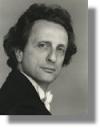 Andrea Passigli studied in Italy and in the United States. He graduated cum laude from the Conservatory L. Cherubini in Florence under the guidance of Maria Tipo and participated in the Marlboro Music Festival at the invitation of Rudolf Serkin, whose teaching had a fundamental role in his musical development, which is mainly directed towards Viennese classicism. Important points of reference in his education where also his meetings since childhood with Pablo Casals, Nikita Magaloff.. Mr. Passigli, who has constant interest for chamber music and Lied, has performed in recitals and concertos in Italy, U.S.A, Austria, England, Holland, Russia, Rumania, Yugoslavia, Hungary and Poland. He has recorded an album of 2CD with music for piano solo by Schubert, edited by fonè, a CD dedicated to Lieder on texts by Heine with the baritone Leonardo Wolovsky, and one on French impressionism with flutist Alexander Duisberg edited by Ema Records. He is Professor of Piano at the Conservatory G. Frescobaldi in Ferrara.
Andrea Passigli studied in Italy and in the United States. He graduated cum laude from the Conservatory L. Cherubini in Florence under the guidance of Maria Tipo and participated in the Marlboro Music Festival at the invitation of Rudolf Serkin, whose teaching had a fundamental role in his musical development, which is mainly directed towards Viennese classicism. Important points of reference in his education where also his meetings since childhood with Pablo Casals, Nikita Magaloff.. Mr. Passigli, who has constant interest for chamber music and Lied, has performed in recitals and concertos in Italy, U.S.A, Austria, England, Holland, Russia, Rumania, Yugoslavia, Hungary and Poland. He has recorded an album of 2CD with music for piano solo by Schubert, edited by fonè, a CD dedicated to Lieder on texts by Heine with the baritone Leonardo Wolovsky, and one on French impressionism with flutist Alexander Duisberg edited by Ema Records. He is Professor of Piano at the Conservatory G. Frescobaldi in Ferrara.
Kategoria: Andrea Passigli | Komentarze wył. »
Pianista Andrea Passigli studiował we Włoszech i USA. Ukonczyl z najwyzszym odznaczeniem Konserwatorium L. Cherubini we Florencji w klasie Marii Tipo. Na zaproszenie Rudolfa Serkina uczestniczył w Marlboro Music Festival. Rudolf Serkin miał duży wpływ na muzyczny rozwój artysty i jego szczegolne zainteresowanie wiedeńskim klasycyzmem. Silny wpływ na osobowość artysty mieli również Pablo Casals i Nikita Magaloff, z którymi spotykał się od dzieciństwa. Andrea Passigli jest solistą, kameralistą i posiada glebka znajomosc repertuaru Lieder. Grał recitale i koncerty we Włoszech, USA, Austrii, Angli, Holandii, Rosji, Rumunii, Jugosławii, na Węgrzech i w Polsce. Nagrał podwójny album z muzyką na fortepian solo Schuberta wydany przez “foné” oraz CD “Ema Records” z flecistą Alexandrem Duisbergiem, poświęcony francuskiemu impresjonizmowi, jak również CD z barytonem Leonardo Wolovsky z Lieder do tekstow Heinego. Andrea Passigli jest profesorem fortepianu w Konserwatorium G. Frescobaldi w Ferrarze we Włoszech.
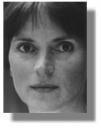 Skrzypaczka Weronika Kadłubkiewicz jest absolwentką Wyższej Szkoły Muzycznej w Warszawie w klasie Krzysztofa Jakowicza. Kontynuowała studia z Henrykiem Szeryngiem i Romanem Totenbergiem w USA. Solistka wielu orkiestr w Polsce, USA i Europie, koncertmistrz New Hampshire Symphony, Orchesta Filarmonica de Gran Canaria i Polskiej Orkiestry Kameralnej. Grała również z Boston Symphony i Orpheus Chamber Orchestra. Dwukrotnie uczestniczyła w Sommerkurse w Darmstadt, a na zaproszenie Lejarena Hillera była rezydentką Creative Associates w Buffalo NY. Występowała na scenach w Polsce, Hiszpanii, Włoszech, Szwecji, Francji, Niemczech, Szwajcarii, Kanadzie i USA. Utalentowana wykonawczyni skrzypcowej muzyki współczesnej ma na swoim koncie prawykonania utworów, z których wiele zostało napisanych specjalnie dla niej. Weronika Kadłubkiewicz brała udział w festiwalach: Warszwska Jesień, Marlboro Music Festival, Bach Aria, Monadnock Music i inne. Prowadziła klasę skrzypiec i muzyki kameralnej w Amherst College, University of Massachusetts i w Smith College. Nagrała płyty dla firm Gasparo i CRI. Po dwudziestu latach pobytu w Stanach Zjednoczonych przeniosła się do Paryża.
Skrzypaczka Weronika Kadłubkiewicz jest absolwentką Wyższej Szkoły Muzycznej w Warszawie w klasie Krzysztofa Jakowicza. Kontynuowała studia z Henrykiem Szeryngiem i Romanem Totenbergiem w USA. Solistka wielu orkiestr w Polsce, USA i Europie, koncertmistrz New Hampshire Symphony, Orchesta Filarmonica de Gran Canaria i Polskiej Orkiestry Kameralnej. Grała również z Boston Symphony i Orpheus Chamber Orchestra. Dwukrotnie uczestniczyła w Sommerkurse w Darmstadt, a na zaproszenie Lejarena Hillera była rezydentką Creative Associates w Buffalo NY. Występowała na scenach w Polsce, Hiszpanii, Włoszech, Szwecji, Francji, Niemczech, Szwajcarii, Kanadzie i USA. Utalentowana wykonawczyni skrzypcowej muzyki współczesnej ma na swoim koncie prawykonania utworów, z których wiele zostało napisanych specjalnie dla niej. Weronika Kadłubkiewicz brała udział w festiwalach: Warszwska Jesień, Marlboro Music Festival, Bach Aria, Monadnock Music i inne. Prowadziła klasę skrzypiec i muzyki kameralnej w Amherst College, University of Massachusetts i w Smith College. Nagrała płyty dla firm Gasparo i CRI. Po dwudziestu latach pobytu w Stanach Zjednoczonych przeniosła się do Paryża.
Kategoria: A.Passigli & V.Kadlubkiewicz | Komentarze wył. »
 They seem to have been cast in the same mould, very much like two beans in a sackful of coffee. It should be added – an exceptionally strong and aromatic coffee. Quite simply – “Doppio Espresso”.
They seem to have been cast in the same mould, very much like two beans in a sackful of coffee. It should be added – an exceptionally strong and aromatic coffee. Quite simply – “Doppio Espresso”.
They heard someone ordering a ‘doppio espresso’ in a bar and fell under the spell of the drink’s strength.
The fact that this is what they decided to call their duo tells us much about the kind of impact they want to make on listeners. Surely, their performances are not luke-warm.Interestingly enough, they became friends long before the duo saw the light of day. They were in secondary school at the time. They first met at the Piano Festival in Nałęczów and the masterclasses given there by Micha³’s father, the prominent pianist Marek Drewnowski.Daniel attended at that time the Secondary Music School in Krosno, studying in the piano class of Dorota Skibicka. He subsequently studied with Marek Drewnowski. Before he became his student, he once moved his future professor to tears with his playing of Chopin’s music. These were tears of emotion, to which the professor himself admitted. Daniel was already then a very sensitive and reflective man. He read a lot. He made much effort to strike a balance between emotion and intellect in his playing.Michał, for his part, drove to tears another outstanding pianist, Naum Shtarkman, to whom he presented his interpretation of Scarlatti’s Sonata in F minor in the same venue the previous year. Michał had always wanted to play an ambitious repertoire (Liszt, Rachmaninov) and he could listen passionately to his beloved Vladimir Horovitz, from whom he derived his musical inspiration.Studying together, Daniel and Michał continued to be close friends, even though the nature of their profession would rather provoke stiff competition between them. During their studies at the Conservatoire de Musique in Geneva (where they both went after graduating from the Music Academy in Łódź), they decided to set up a duo. They made their debut in the prestigious Victoria Hall in Geneva, with a programme including works by Leonard Bernstein and Astor Piazzolla. Right now, with Michał back in Łódź and Daniel in Krosno, their duo continues to perform and record. This debut CD is a discovery of the New World, for themselves and for music lovers. In Europe, the music of both Americas, and of South America in particular, is something new and somewhat exotic. These days it is simply fashionable, with almost all people easily recognizing the tune of Astor Piazzolla’s Libertango or the themes of Bernstein’s West Side Story. In addition to these two great masters, the CD contains miniatures by Piazolla’s artistic followers, Pablo Ziegler and José Bragato, as well as Brazilian Dance by the Canadian composer Roger Matton. This last piece is a like a symbolic blend of the CD’s two parts – the music of North and South America. It should be hoped that the great passion and commitment of the duo “Doppio Espresso” will help all listeners gain better insights into this music and fall in love with it.
Ewa Cisowska
Michał Drewnowski was born in Warsaw in 1977. He started learning to play the piano in Italy, when he was 8, under the supervision of his father, an excellent pianist Marek Drewnowski. After his return to Poland at the age of 14, he continued his musical education, at Karol Szymanowski Secondary Music School in Warsaw in the class of professor Bronisława Kawalla and Professor Ewa Pobłocka. In 2001 he graduated with honours from Bacewicz Music Academy in Łódź, where he studied under the guidance of his father, professor Marek Drewnowski. He also developed his skills in Genf Conservatory of Music with such distinguished teachers as Dominique Merlet and Pascal Devoyon; there he also obtained a diploma with distinction. He took part in many master courses given by such eminent pianists as Nauma Shtarkmann, Miłosz Magin, Fou T’song, Rudolf Kehrer and Eugen Indjic.
He is a prize-winer in the following competitions: Special Prize at the 1st Aleksander Tansman International Festival and Competition of Musical Personalities in Łódź (1996), First Prize at 13th Grażyna Bacewicz All-Polish Chamber Music Competition in Łódź (1998), at 32th Polish Piano Festival in Słupsk (1998), Second Prize at M.Masin International Piano Festival in Sangemini (Italy, 2000), Second Prize at Piano Competition A.GI.MUS in Rome (2005).
Michał Drewnowski gives concerts, both as a soloist and a chamber musician, in Poland, Italy, France, Switzerland, Luxembourg, Belgium, England, Austria, Czech Republic and Germany. He has performed with many renowned orchestras in Poland and abroad with leading conductors such as Piotr Wijatkowski, Janusz Powolny, Tadeusz Kozłowski, Vladimir Kiradjev and Stanislav Oushev. He participated in many prestigious festivals, such as Passage in Warsaw, Salon of Arts in Sofia, Festival Musicale di Norcia (Italy), Varna Summer Festival (Bulgaria), Cracow Spring Music Festival, Warsaw Music Encounter, Chopin Geneve Festival, Keminklavier in Kemi (Finland).
He also gave concerts in: Concerti Gianicolo in Rome, Steinway Kammersal in Kopenhaga, Kunstmuseum in Silkeborg (Denmark), Sala Bulgaria in Sofia, Wigmore Hall in London. In the period of 2000-2001 he participated as a pianist and also an actor at Teatr Nowy in Warsaw in a play of Adam Hanuszkiewicz “Chopin, his life, his love, his music”. He perfomed the main character – Frederic Chopin.
Michał Drewnowski is a cofounder of Voland Quartet, with which he gave concerts in many countries of Europe. They also made recordings for GEGA NEW company where they play the music of B.Bartok, A.Aroutunian, A.ben Shabetai, J.Bauer, G.Arnaoudov, H.Yotzov for two pianos and percussion. He is also a cofounder of piano duet Doppio Espresso, that specialises in music of American and Latinoamerican composeres, such as L.Bernstein, A.Piazzolla, P.Ziegler, and J.Bragato.
Daniel Eibin graduated from the Music Academy in Łódź, where he studied with Marek Drewnowski (a diploma with distinction), and the Conservatoire de Musique in Geneva, with Elizabeth Athanassova. His honours include First Prizes at the International Chamber Music Competition in Łódź (2001), the Chopin International Piano Competition in Antonin (1996) and the National Competition of Chamber Ensembles in Wrocław (1994). He is also a prizewinner of the Józef Hofmann and Ignacy Jan Paderewski Competition in Nałęczów (1997). He gave several concerts during the “Festival du Printemps – Sacre de la Musique” in France (1997). He held grants from the Minister of Culture (1996, 2001) and the Fondation Norbert Schenkel in Geneva (2004).
He perfected his skills attending masterclasses given by Janusz Olejniczak, Lee Kum Sing, Ivana Klansky, Alfonso Montecino and Eugene Indjic. He has made recordings for Polish Radio and Polish Television.
He is a co-founder of the piano duo “Doppio Espresso” which performs modern classical music. He developed a fine career, with regular performances in Poland and many European countries, both in recitals and in chamber ensembles performing music of various periods. In 2002 he began a teaching career. [/english]
Kategoria: Doppio Espresso | Komentarze wył. »
Jerzy Maciejewski began to study piano at the age of five and continued very extensive music education until he became a student at The Fryderyk Chopin Warsaw Academy of Music. He received master’s degree in piano as a student of Maria Wilkomirska. Jerzy Maciejewski is currently the Professor at The Warsaw Academy of Music in Warsaw and Visiting Professor Kaemyung – Chopin Academy in Daegu (South Korea). Every year he is being invited to give workshops and seminars at the Master’s Training Programs in Poland and abroad, for instance at The Wiener Musik Seminars in Vienna, Austria. He is also participating in a special music events for children and young audience organized by National Philharmonics in Poland.
His artistic career was launched when he was still a student at The Academy of Music. Being a member of The Fryderyk Chopin’s Society in Poland, he gave a number of piano concerts. As a talented pianist he was granted multiple scholarships from The Fryderyk Chopin’s Society.
During his artistic career Jerzy Maciejewski cooperated very closely with The Fryderyk Chopin’s Society of Warsaw. During that time he gave a number of recitals in places where Fryderyk Chopin was born and lived. The examples of concerts in such places are: Chopin Family’s house in Żelazowa Wola where Chopin was born, and concerts at the Chopin’s Monument at Łazienki Park in Warsaw. The pianist participated in many prestigious piano festivals, e.g. in Duszniki and Słupsk, Poland. He was invited to participate in philharmonic performances in Poland and most of the European countries as well as in South Korea and Mexico. During the last few years he performed a wide variety of classical and contemporary music; for example music by George Crumb and Stanisław Moryto.
Jerzy Maciejewski performed many of original works of contemporary composers as solo concerts as well as with chamber, and philharmonic orchestras.
Within the several years, an artist was particularly interested in working with chamber groups, and outstanding polish musicians. Together they gave many chamber performances in Poland and abroad. Jerzy Maciejewski is the creator of The Ignacy Jan Paderewski’s Piano Trio Group and co-creator of The Camerata Vistula Chamber Music Group in Poland.
An artist recorded complete works of Karol Szymanowski for violin and piano together with violinist Magdalena Rezler, as well as songs of Fr. Chopin and I. J. Paderewski sung by Ewa Izykowska.
He is also known as an interpreter of music for two pianos and drums by Bela Bartok and George Crumb in cooperation with Stanisław Skoczynski.
On average he performs about 60 concerts per year, solo or with other artists and/or orchestras.
Kategoria: Jerzy Maciejewski | Komentarze wył. »
